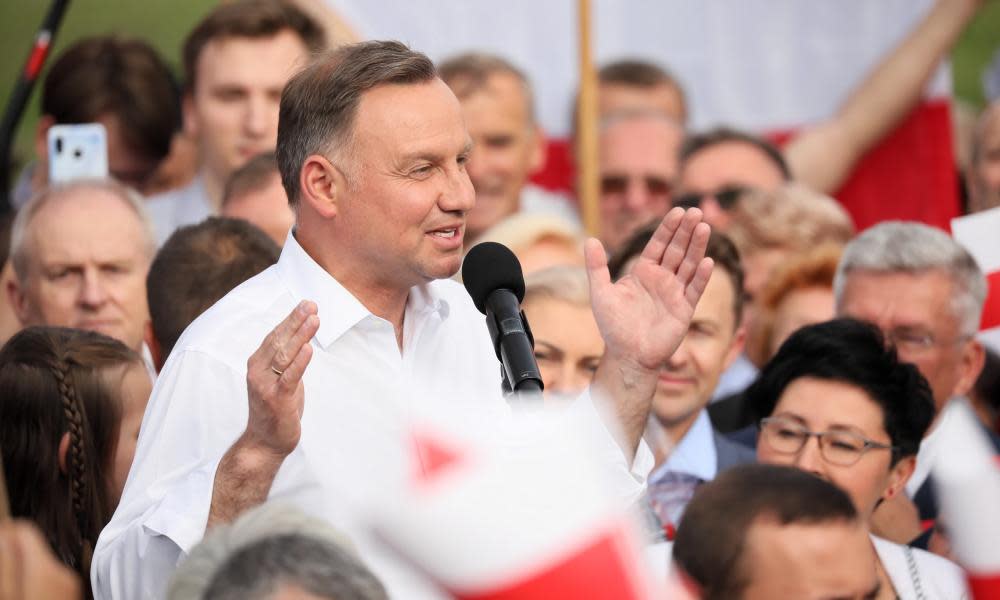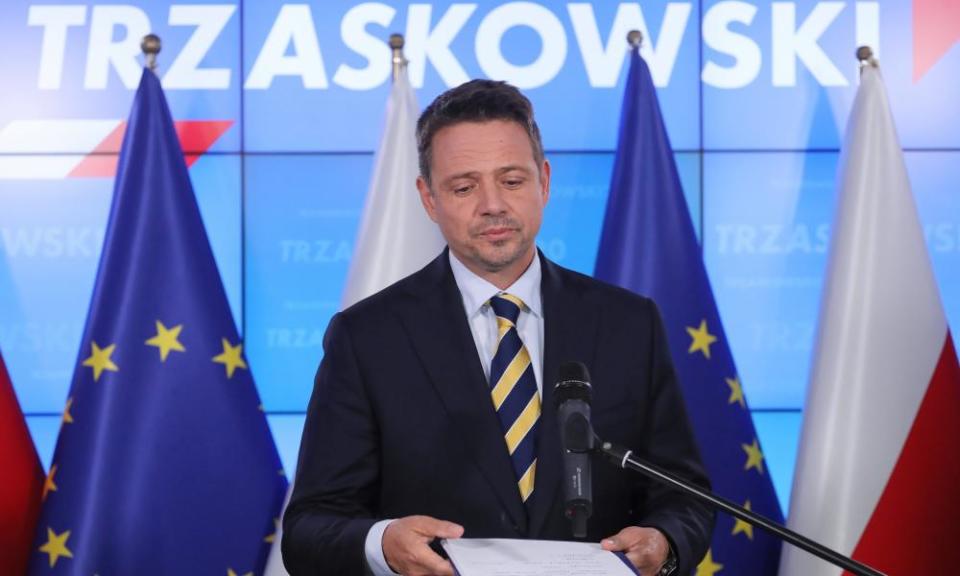'The coffin is being closed on democracy': Polish liberals despair after Duda's win

Anaemic grey clouds hung over much of Warsaw as the city’s liberals and progressives came to terms with the fact that it will almost certainly be another three years, during parliamentary elections in 2023, before they get a chance to challenge the ruling party’s hold on power after its preferred candidate, Andrzej Duda, won re-election as president on Monday.
“It feels like the coffin is being closed on the fight for our formal democratic institutions,” said Rafał Suszek, a physicist and democracy campaigner who has been arrested several times in recent years for engaging in campaigns of direct action and civil disobedience.
“This was not a normal, fair election held in a liberal democracy,” said Agnieszka Graff, a public intellectual and professor of cultural studies at the University of Warsaw. “This was an election in which we would either allow or prevent the final stage of dismantling democracy of Poland, and right now it really feels like it’s game over.”
Related: Polish election: Andrzej Duda victory hands populists free rein
But as they lick their wounds – with many nursing hangovers, talking of emigration, or both – Polish liberals and defenders of the rule of law are caught between their anger and frustration at what they regard as a playing field tilted by state authorities in the incumbent’s favour, and a discombobulating mixture of dread and cautious optimism engendered by a close result that only a month or two scarcely seemed imaginable.
The extreme partisanship and toxic rhetoric of Poland’s state media, controlled directly by Law and Justice (PiS) since its victory in parliamentary elections in 2015, has shocked Polish moderates and garnered international attention and criticism. Observers note that a contested result would have been adjudicated by a controversial chamber of the country’s supreme court packed with PiS loyalists appointed by Duda himself.
The problem is that the conflict in our society is not going to end just because the elections are over”
Prof Marcin Matczak
“The elections were neither fair nor constitutional, but there’s nothing that can be done about that now,” said Marcin Matczak, a law professor at the university of Warsaw and trenchant critic of the government’s campaign to assert its direct control over the Polish judiciary.
“The problem is that the conflict in our society is not going to end just because the elections are over. Unlike his election in 2015, Duda’s legitimacy is going to be seen as very weak, at a time when he is likely to be supporting an even more hardline government agenda. On top of that, many people have lost faith in the legitimacy of our institutions to be an impartial arbiter. At a time of stronger and stronger emotions, I fear we are entering an even more intense period of division.”

Some worry that Rafał Trzaskowski’s strong showing will mask what many regard as the abject failures of Poland’s leading opposition parties to hold Law and Justice effectively to account.
For several years, efforts to forge a common front in the face of PiS’s successful long march through the institutions have been hampered by ideological disagreements and factional disputes.
“Trzaskowski was a good candidate, but he was harmed by the fact that he represented a party,” said Matczak. “All the polls suggested that a non-party candidate had a better chance of beating Duda in the second round, but the opposition leadership put party above country and now we’re all paying for it.”
Related: Andrzej Duda's re-election set to intensify Poland-EU tensions
For others, Duda’s victory in a campaign that relied heavily on explicitly homophobic and antisemitic rhetoric and that continually portrayed Trzaskowski and his supporters as representing “foreign interests”, the soul-searching has been profound – and painful.
“We have been deluding ourselves – we simply assumed that Poland was a western country, but we didn’t actually do what was necessary to make it a western country,” said Graff.
“We still have an authoritarian school system, and moral values are dominated by the Catholic Church, which is also authoritarian. So why are we surprised when our politics is authoritarian too?”

 Yahoo News
Yahoo News 
